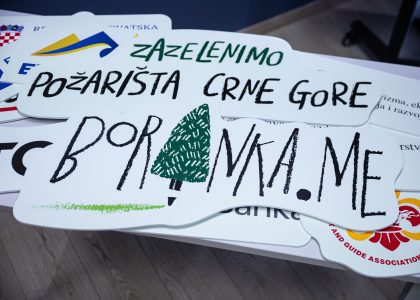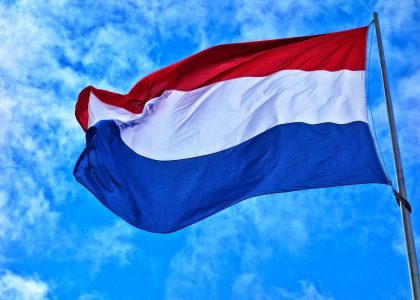EU Ambassador to Montenegro, Oana Cristina Popa, and the Regional Director of the World Health Organisation (WHO) for Europe, Hans Kluge, signed a grant agreement involving €300,000 from the European Union to support the “strengthening of surveillance capacities of COVID-19 in Montenegro.” The nine-month long project is implemented by the World Health Organisation Office in Montenegro on behalf of the Health system in order to improve national surveillance against COVID-19 in Montenegro.
While signing the donation agreement with the WHO, Ambassador Popa reminded that the EU came to Montenegro’s help immediately after the COVID-19 pandemic started. The EU provided over €55 million to help the country, with both immediate aid, as well as long-term assistance to alleviate the impact on both the economy and the people. According to the EU Ambassador, the EU has so far donated ventilators, X-ray machines, protective equipment, as well as a mass-testing PCR machine. More equipment will be delivered soon.

“As part of our larger EU assistance package for managing the pandemic, today we are starting another project with the World Health Organisation to further support the Ministry of Health. WHO experts will help to strengthen national capacities for COVID-19 case investigations and contact-tracing, which should improve data-collection and analysis. This will enable the Ministry of Health to take timely decisions on effective public health measures, reduce transmission rates, as well as infections and hospitalisations,” explained Ambassador Popa.
WHO’s Regional Director for Europe, Hans Kluge said that the COVID-19 pandemic represents a great stress on the health systems, but also that it is only in partnership that the pandemic can be overcome. Kluge thanked the EU Delegation to Montenegro for its strong support since the beginning of the pandemic through the procurement of medical supplies and equipment, support for the COVAX mechanism, and the donation of COVID-19 vaccines from the EU and Member States on a bilateral basis. The EU has so far donated 42,000 doses of the Pfizer-BioNTech vaccines, while Member States have donated more than 300,000 doses of the vaccine to Montenegro bilaterally.
WHO’s Regional Director for Europe emphasised that “the implementation of the project for strengthening the surveillance of COVID-19 is in the function of generating new knowledge on the transmission of the virus in Montenegro, and the collection of data and evidence as a basis for shaping responses to COVID-19.” During the implementation of the project, special attention will be paid to strengthening the capacity for monitoring contacts and case investigations, which is crucial especially in these circumstances where a new strain has appeared – the Omicron.
“In partnership with the European Union, we will now focus together on one of the remaining challenges, and that is the surveillance of COVID-19,” Kluge said.
The signed agreement aims to strengthen the capacity of national surveillance against COVID-19 in Montenegro, more precisely to ensure the strengthening of national capacities for the detection, response and control of COVID-19. It will also contribute to the goal of the Economic and Investment Plan for the Western Balkans to support the countries of the region in strengthening the resilience of health systems, both in terms of emergency health and health insurance, in light of lessons learned from the COVID-19 pandemic. The signing of the contract was attended by the Minister of Health in the Government of Montenegro, Jelena Borovinic Bojovic.
“Since the very first day of pandemic, the EU and the WHO have provided significant financial and professional assistance to Montenegro, in order to mitigate the economic, health and social effects of the coronavirus crisis,” said Borovinic Bojovic.
As the Minister pointed out, the signing of the donation agreement was another confirmation of the great solidarity, friendship and, above all, close cooperation and partnership, which EU countries show towards Montenegro.


